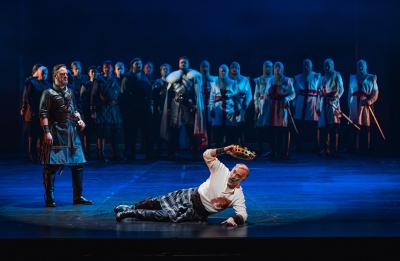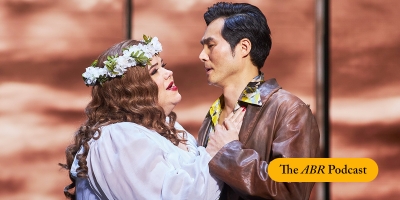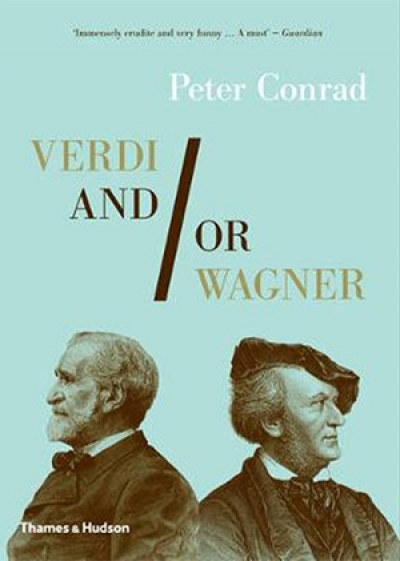Verdi
Sign up to From the Archive and receive a new review to your inbox every Monday. Always free to read.
Recent:
During his five years as artistic director of State Opera South Australia, Stuart Maunder steered the company out of bleak times to some moments of genuine glory with a number of theatrically strong if mostly smaller productions. Among them, Sweeney Todd and Turn of the Screw stood out for their psychological realism, but he will also be remembered for having revived Richard Meale’s Voss in a highly successful semi-staged version in 2022.
... (read more)Based on Antonio Garcia Gutierrez’s El Trovador, a romantic melodrama set against the backdrop of a fifteenth-century Spanish civil war, Giuseppe Verdi’s Il Trovatore has been described as the ‘apotheosis of the bel canto opera, with its demands for vocal beauty, agility and range’. Yet in what is also his darkest and most death-haunted work, Verdi invests the brightness and vocal embellishments of bel canto with greater dramatic tension ...
... (read more)Whenever you hear a good performance of any one of at least half a dozen operas by Giuseppe Verdi, it’s tempting to think: this surely he can never have surpassed. Il Trovatore, from his fecund middle phase, is one such opera. But then one recalls La Traviata and Don Carlo and Otello – on the list goes – and simply marvels at the variety and richness of his oeuvre.
... (read more)Opera Australia’s Melbourne season began on 4 May with a revival of Elijah Moshinsky’s 1994 production of La Traviata, often seen here before. The season ends on 28 May, with eight more performances. It’s a short work, with four scenes each about thirty minutes long, ideal for those new to opera or keen for melodic relief from election discord.
... (read more)Devotees of Giuseppe Verdi often suggest that the composer’s version of Shakespeare’s Othello is ‘greater’ than the original; a fruitless assertion, but indicative of the esteem in which Verdi’s penultimate opera is held. After Aida (1871), Verdi was enjoying the life of a gentleman farmer. Italian opera of the 1870s and 1880s, however, was facing something of a crisis, threatened by the relentless tide of ‘Wagnerism’, whose theories on opera were embraced by many Italians. Verdi, when asked about his own theory of theatre, drily replied: ‘My theory is that the theatre should be full’.
... (read more)After two hapless ventures into the world of Verdi in 2013 (his bicentenary year), Opera Australia has given us an entertaining new production of Rigoletto – one that will probably stay in the company’s repertoire for as long as its lucrative predecessor.
Elijah Moshinsky’s slick production (1991), which leaned on Fellini’s La Dolce Vita, was just one of many radical updatings of Verdi’s 1851 masterpiece, which had its première in Venice. Director Roger Hodgman bucks this trend and restores the opera to sixteenth-century Mantua.
... (read more)Opera Australia’s spring season in Melbourne opened with two masterpieces by Verdi in his bicentennial year. It was a decidedly rocky pairing.
La Fura dels Baus’s production of Un Ballo in Maschera was first seen in Sydney in January. La Fura is open about its intentions. Assistant director Valenti ...
Verdi and/or Wagner by Peter Conrad & Great Wagner Conductors by Jonathan Brown
In Sydney last month, Barry Kosky’s production of Verdi’s Nabucco was booed by a section of its first-night audience, a unique occurrence, this, at the Australian Opera, but one that Kosky took in good part as an extension of the ‘playful’ side of the evening’s events.
... (read more)






